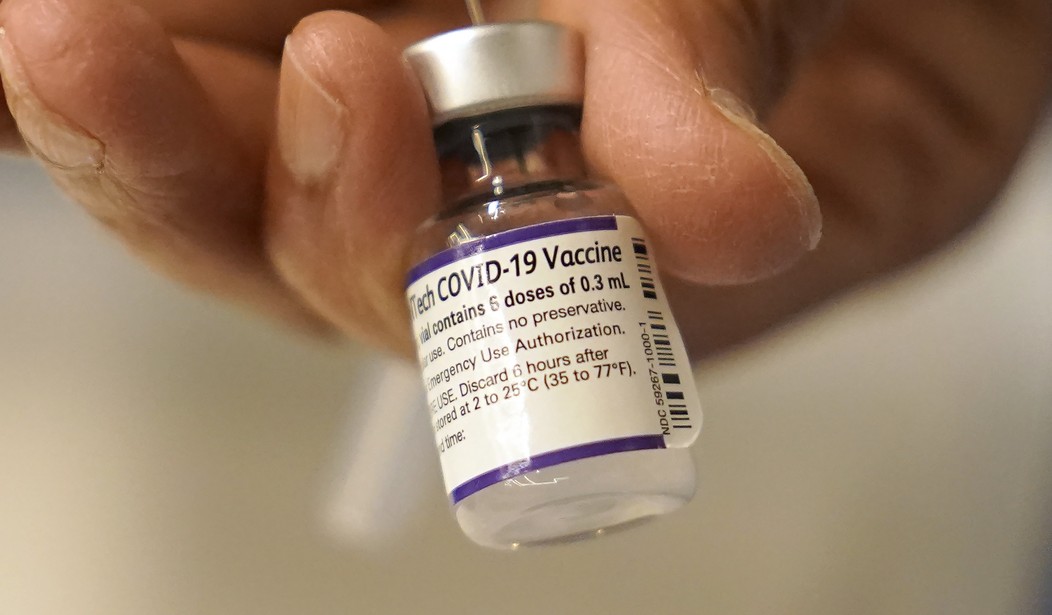In the early days of the national vaccination push, we were following numerous stories about the side effects people encountered after receiving the various COVID vaccines. Most were relatively mild, including headaches, fatigue, and soreness at the injection site. Later we learned of reports of more serious ones, ranging from blood clots to enlargement of the heart. But were those side effects real or were they all in your head? That question spurred a study conducted by Ted Kaptchuk of Harvard Medical School and Dr. Julia Haas of Beth Israel Deaconess Medical Center in Boston. Their curious conclusion was that a significant percentage of people reporting various side effects were actually encountering what’s known as the “nocebo effect” (the opposite of the placebo effect). But a closer look at their findings raises questions about how reliable these results may be. (The Guardian)
More than two-thirds of the common side-effects people experience after a Covid jab can be attributed to a negative version of the placebo effect rather than the vaccine itself, researchers claim.
Scientists in the US examined data from 12 clinical trials of Covid vaccines and found that the “nocebo effect” accounted for about 76% of all common adverse reactions after the first dose and nearly 52% after the second dose.
The findings suggest that a substantial proportion of milder side-effects, such as headaches, short-term fatigue, and arm pain are not produced by the constituents of the vaccine, but by other factors thought to generate the nocebo response…
Most people are familiar with the placebo effect and it’s fairly well documented. People who volunteer for medical studies who are given a harmless “fake” medication, vaccine, or other treatment report feeling better after taking it, even if they were injected with nothing but saline water instead of the actual medication. In other words, if you truly believe that you’re going to feel better, your brain will make you feel better.
The nocebo effect is the opposite phenomenon. If you believe you are undergoing a procedure that may negatively impact you, your brain has the ability to make you believe that you feel worse. In the case of this study, it’s suggested that people who received the vaccines and reported some of the milder side effects I listed above weren’t really having an adverse reaction because some people who were given the placebo vaccine during clinical trials reported the same effects.
The problem with this study, at least as I see it, is that most of these effects are impossible to measure in a scientific fashion. There is no test to confirm whether or not a person actually has a headache unless they have a brain tumor or some other malignant anomaly that could cause it. As for fatigue, there’s no way to measure that either. You know if you feel tired or not. And whether the vaccine caused it or not doesn’t really matter to the patient who is experiencing the symptoms.
Oddly, the authors of the study included as one of the side effects being studied, “arm pain or redness or swelling at the injection site.” This makes no sense. It doesn’t matter whether the syringe was filled with saline solution or the Pfizer vaccine. You’ve still just had a rather lengthy needle jabbed a fair way into your arm. The body naturally reacts to that sort of puncture and redness or soreness are obvious responses.
And what of those more serious side effects such as blood clots or heart inflammation? The study “did not look” at those.
Finally, some of the data seems to almost directly contradict the conclusions. This is particularly true of the trial groups reporting effects after the second shot. Reports of “systemic symptoms” (headaches or fatigue) were reported by 61% of those who received the real vaccine, but only 32% of those given the placebo. That’s an almost two-to-one disparity between the two groups. That seems quite a bit outside of random chance, doesn’t it?
So why launch into the study in the first place? A hint may be found in remarks given by the authors. They expressed their hope that “public information about nocebo responses may improve Covid vaccine uptake by reducing the concerns that make some people hesitant.” I don’t know about you, but that sounds a lot more like pro-government propaganda than science. But hey… maybe that’s just me.








Join the conversation as a VIP Member